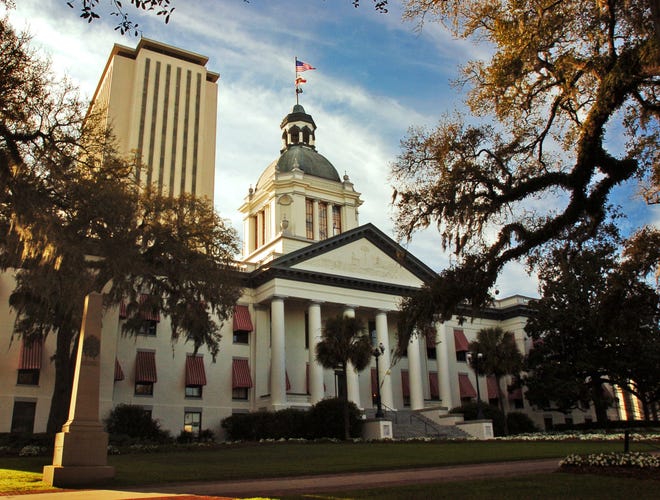Florida Lawmakers Consider Measures to Empower Policyholders in Insurance Disputes
In an unexpected turn, Florida legislators are contemplating consumer-focused legislation aimed at giving policyholders more leverage in disputes with insurance companies. This shift marks a potential course correction in the state’s ongoing property insurance crisis.
The Palm Beach Post Editorial Board
It’s a notable change of pace: state lawmakers are currently weighing legislation that would empower policyholders to legally contest their insurance companies’ claim denials. This move, though belated, is a welcome development in addressing Florida’s persistent property insurance woes.
House Bill 1551, spearheaded by state Rep. Hillary Cassell, a Republican representing Dania Beach, proposes reinstating the right to sue insurance companies that deny legitimate claims. This crucial recourse was removed from policyholders in 2022 by the legislature and Gov. Ron DeSantis, who argued the changes were essential to protect the insurance industry’s ability to operate in the state. Lawsuits, the reasoning went, were the primary reason insurers were leaving Florida.

The so-called “tort reform” of 2022 clearly benefited insurers, who had long blamed lawsuits for their operational challenges in Florida. However, while litigation against insurers decreased, a recent report revealed that companies doing business in Florida paid millions to shareholders and billions to their affiliates, all while reporting substantial losses. This information triggered an outcry from exasperated policyholders, compelling lawmakers to reconsider the consumer perspective.
The legislation currently under consideration would mandate that insurers cover plaintiffs’ attorney fees in certain instances. It advanced with a bipartisan 15-1 vote from the Insurance and Banking Subcommittee, much to the displeasure of the Florida Chamber of Commerce. However, the bill faces significant opposition. The insurance industry is pushing back, contending that a resurgence of lawsuits would only drive up rates, increase premiums, and deter companies from offering property insurance coverage in Florida.
Lawmakers should approach the industry’s concerns with caution. The payouts detailed in the aforementioned 2022 report transpired while insurers were canceling policies, raising rates, and claiming insolvency. Worse, state regulators were aware of the situation but either failed to finalize the report or share its findings with the public. It’s little wonder that a bill proposing a small alteration to the process is garnering bipartisan support.
By 2022, Floridians were experiencing the height of a crisis characterized by a changing climate and an increase in damaging storms that had caused insurers to either pull out of Florida or stay and increase premiums or limit coverage. To counter rising costs, the governor and state lawmakers implemented changes restricting litigation while providing funds to help insurers manage soaring reinsurance costs. These measures were enacted with promises that rates would decrease within two years.
The promise of lower rates failed to materialize. Months after the law limiting lawsuits went into effect, The Post Editorial Board asked the Insurance Information Institute, an association of the nation’s foremost insurers when policyholders might see relief. The answer? Years. Officials from the Institute stated that litigation remained a major problem, in spite of the Florida Legislature’s two special sessions and a regular session during which the insurance industry essentially got everything it said it needed to lessen the impact of lawsuits, which were supposedly going to result in lower rates.
Currently, there are positive indicators. Litigation is less of an issue for the insurance industry, as more companies have started doing business in the state. Increases to insurance rates have been modest, if largely flat, and are nowhere near the annual rate hike requests the state had seen a few years ago.
Nonetheless, policyholders remain dissatisfied. Promised rate reductions haven’t occurred, and legislative committee hearings have showcased more property owners voicing their complaints about the industry’s slow response to claims and its ongoing reluctance to pay for damages, even though litigation has decreased. Cassell’s bill, along with another bill that would require insurers’ claim denial decisions to be reviewed, approved, and signed off on by qualified human professionals rather than AI, offers a glimmer of hope in a state capitol that has often prioritized the industry over the consumer.
Last year, Cassell’s aim to address the insurance crisis resulted only in a committee discussion. The fact that her bill is now progressing through one legislative chamber is a step forward. However, lawmakers in both chambers need to act decisively and pass this legislation.


